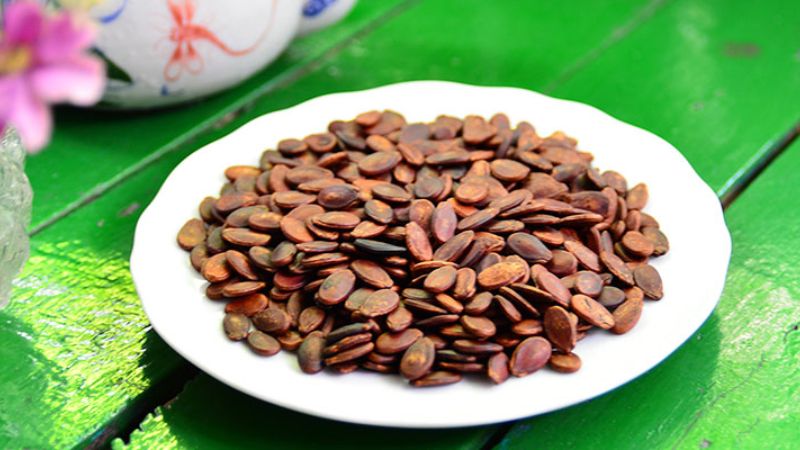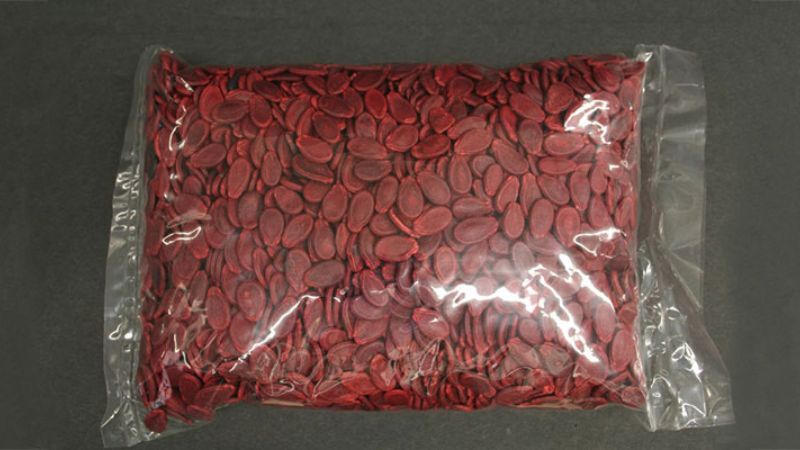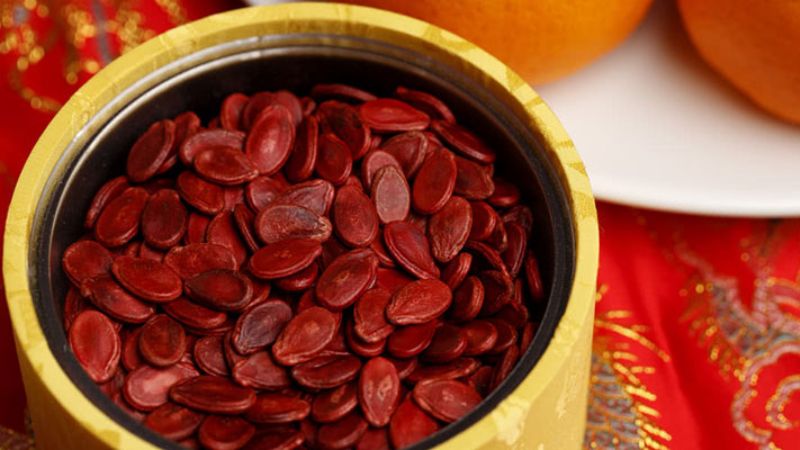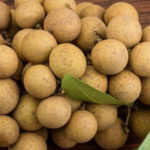During the Lunar New Year, it’s a tradition for families to stock up on various snacks such as watermelon seeds, chestnuts, dried plums, and candies to offer guests during festive visits. However, it’s common for households to be left with an abundance of these snacks once the holiday season passes, leading to waste. Moreover, improper storage of these snacks, especially watermelon seeds, can result in quick deterioration.
Watermelon seeds, though considered a dry snack, can become soggy if left out in the open for too long. This affects their taste and texture, making them less crispy and aromatic than they should be. Consuming watermelon seeds that have been exposed to dust and airborne bacteria can also lead to stomachaches and diarrhea.
 Watermelon seeds left out in the open can become soggy
Watermelon seeds left out in the open can become soggy
1 Tips for Long-Lasting Watermelon Seeds
As mentioned, proper storage is key to maintaining the crispness and freshness of watermelon seeds. After each use, it’s recommended to seal the seeds in a plastic bag or container to prevent air and dust from getting in.
 Seal watermelon seeds in a plastic bag
Seal watermelon seeds in a plastic bag
If your seeds do become soggy, don’t throw them away! Simply heat a pan and roast the seeds until they dry out, then let them cool down before storing them in a container for later use. If you notice any mold, discard the seeds immediately, as consuming moldy seeds can lead to food poisoning or, in the long run, even cancer.
 Keep watermelon seeds in a dry place
Keep watermelon seeds in a dry place
It’s best to store snacks like candies and seeds in a cool, dry, and well-ventilated area, avoiding damp places. Refrain from putting watermelon seeds in the refrigerator, as the moisture and bacteria from other foods can accelerate their deterioration.
2 Things to Consider When Buying Watermelon Seeds for the Lunar New Year
Purchase watermelon seeds from reputable sources that provide clear information about their products’ origins. Properly produced and packaged seeds will have comprehensive labels, including manufacturer details, expiration dates, and ingredient lists.
Opt for seeds with a pale color and avoid those with bright red, shiny appearances. While coloring is often used to enhance the aesthetic appeal of watermelon seeds, vibrant red and shiny seeds may indicate the use of industrial dyes, which can be harmful to health, especially for children. Consuming large amounts of these dyes can lead to liver and kidney damage and even cancer.
Choose seeds that are uniform in size and free from insect damage, moisture, and mold. Consistent sizing and the absence of pests or moisture indicate fresh and high-quality watermelon seeds.
Select seeds with a mild aroma, free from strange odors. A gentle fragrance indicates that the seeds are fresh and have not spoiled.
By following these tips, you can ensure the purchase of safe and healthy watermelon seeds and prolong their freshness throughout the festive season.





































